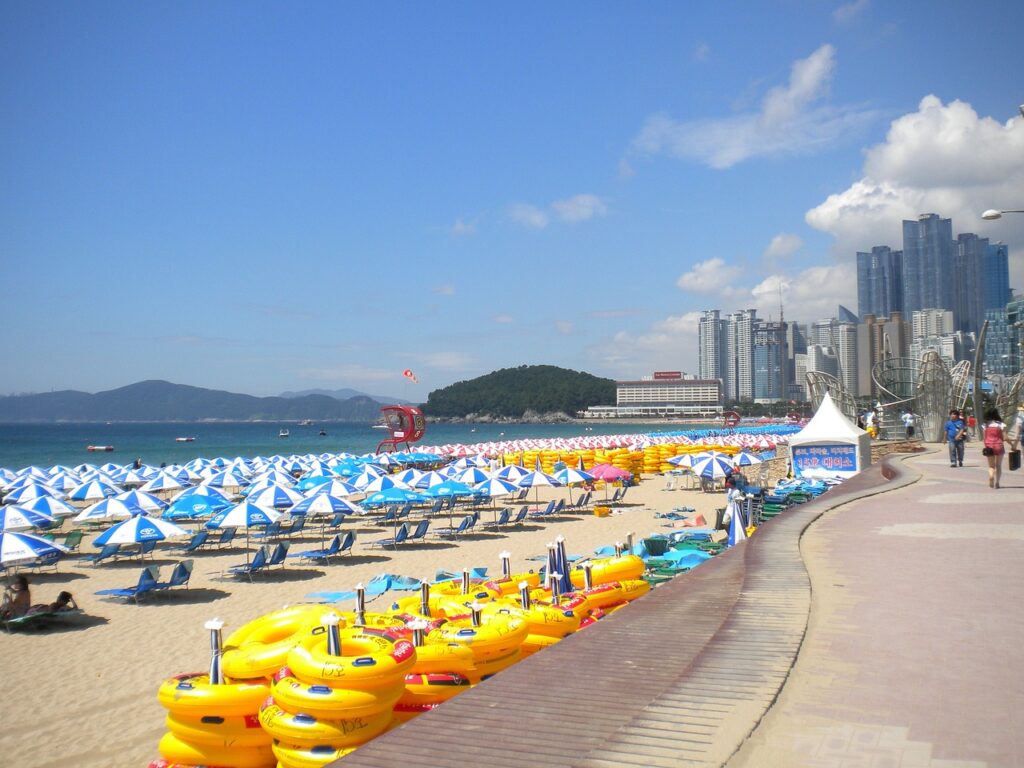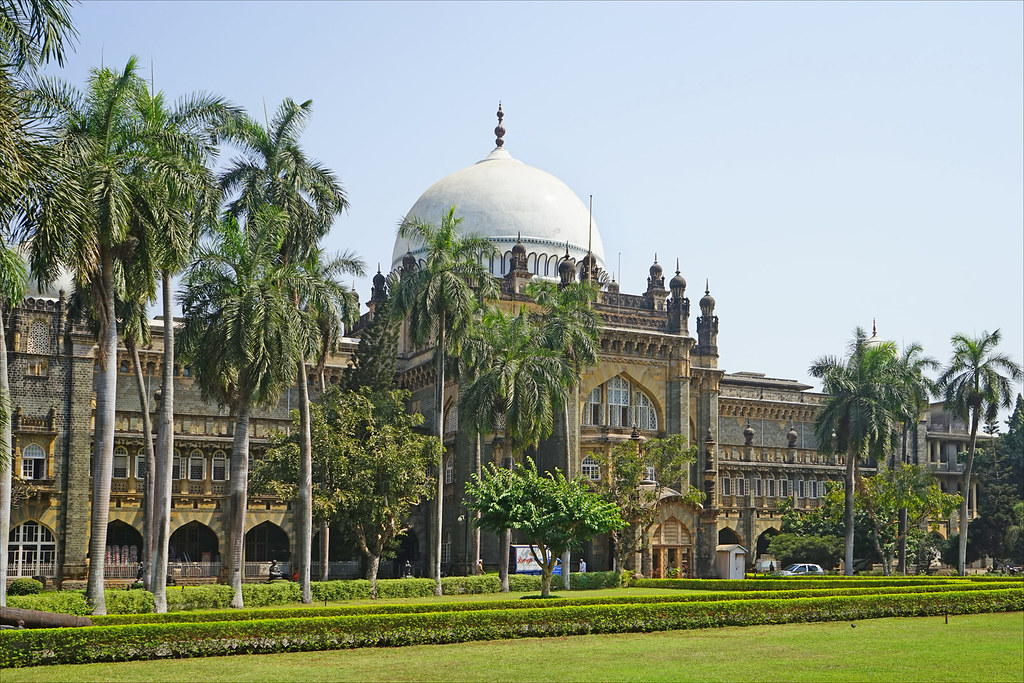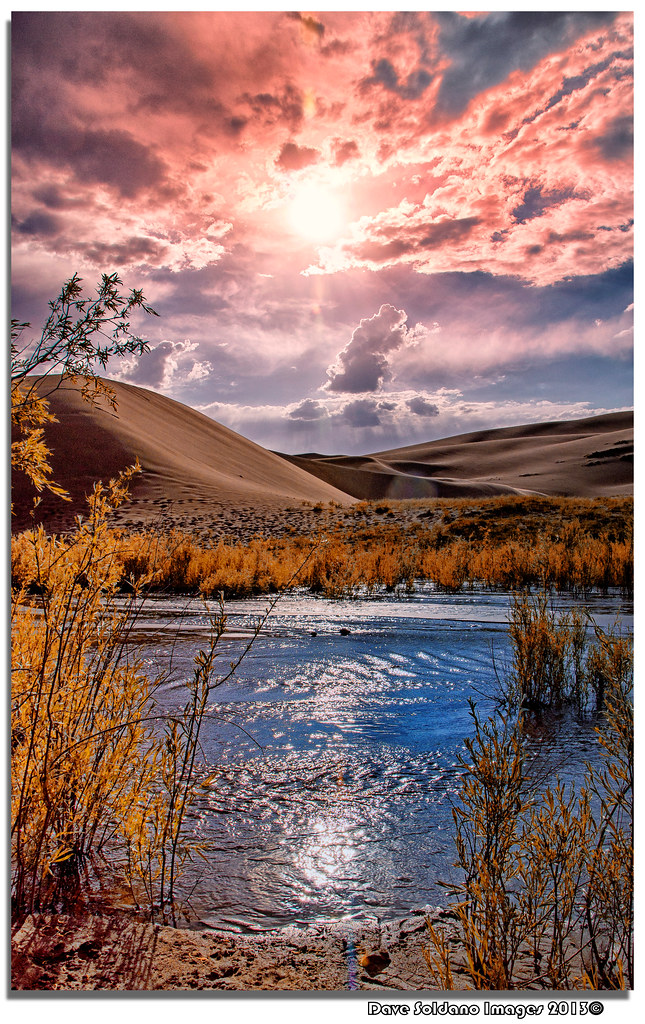Busan, South Korea’s vibrant port city, is a symphony of natural beauty, bustling urban life, and cultural richness. Nestled in the south-eastern province of South Gyeongsang, Busan is not only the country’s second-largest city but also a haven for those seeking a blend of relaxation and adventure. With its picturesque beaches, serene mountains, therapeutic spas, and the freshest seafood, Busan promises a healing experience that touches every sense.
Busan’s appeal in various aspects
The city’s charm is spread across several districts, each with its own unique allure. Haeundae, an upmarket residential and tourist area, boasts the main beaches and luxurious hotels, making it a perfect spot for those looking to indulge in coastal pleasures. Meanwhile, Suyeong is famous for Gwangalli Beach and the stunning Gwangan Bridge, a sight to behold especially at night when it’s illuminated by thousands of lights.
Central Busan is the historical heart of the city, where the downtown areas of Busan-jin, Seomyeon, and the vibrant Jagalchi Market pulse with life. Here, one can witness the seamless blend of past and present as traditional markets and old villages like Gamcheon coexist with modern skyscrapers. North Busan offers peace and tranquility with its mountainous landscapes, home to the Beomeosa Temple and the Geumjeong Fortress. For those who seek nature, West Busan’s nature reserves and the industrial outskirts provide a stark contrast to the city’s urbanity.
Understanding Busan’s appeal is to recognize its laid-back atmosphere, a stark contrast to the hustle and bustle of Seoul. The city exudes an international flair, with sailors and tourists from around the world contributing to its cosmopolitan vibe. Busan is also a city of events and festivals, with the Busan International Film Festival being one of the most notable.
The climate in Busan is sub-tropical, characterized by hot, humid summers and mild winters. Unlike many other parts of Korea, Busan typically doesn’t experience snow, making it an ideal year-round destination. The city’s geographical orientation is also a plus, with its proximity to Seoul and Japan making it an accessible getaway.
For those flying in, Gimhae International Airport serves as the gateway to Busan, offering both international and domestic flights. The airport is well-connected to the city by various means of transport, including metro trains, limousine buses, local buses, and taxis. Alternatively, travelers can opt for a scenic train ride from Seoul to Busan via the KTX high-speed train service, which is often preferred over flying due to its efficiency and comfort.
Once in Busan, getting around is a breeze with the city’s comprehensive public transportation system. The Busan Metro, with its four lines, connects most places of interest, while the Donghae and BGL (Busan-Gimhae Light Rail) lines extend the reach to areas like Haeundae and Gimhae International Airport. For those who prefer the road, driving in Busan offers the flexibility to explore the surrounding areas, although parking can be challenging in the city center.

The city’s transportation card, Cashbee, can be purchased at subway stations or convenience stores and offers discounted fares on the metro and buses. The card system is designed to encourage transfers between different modes of transport, allowing for a seamless travel experience.
Busan’s culinary scene is a feast for the senses, with the Jagalchi Market being the epicenter of its seafood culture. Walking through this market is an experience in itself, with the sights, sounds, and smells of fresh seafood creating an unforgettable atmosphere. The city’s beaches, such as Haeundae and Gwangalli, are not only perfect for sunbathing and swimming but also for savoring local delicacies at the numerous seaside eateries.
In just two days, one can only scratch the surface of what Busan has to offer. Yet, even in this short time, the city’s ability to heal and rejuvenate the soul is evident. From the calming waves of its beaches to the warm hospitality of its people, Busan is a city that stays with you long after you’ve departed its shores.
Busan’s Hidden Gems: Unveiling the City’s Best Kept Secrets
Busan, a city that thrives on its ability to surprise and enchant, is home to a myriad of hidden gems that often escape the typical tourist itinerary. Beyond the well-trodden paths of Haeundae Beach and the bustling streets of Jagalchi Market, lies a treasure trove of experiences waiting to be discovered by those who dare to venture off the beaten track.
A hidden gem: Huinnyeoul Culture Village on the cliffs overlooking the sea. This quaint neighborhood, with its narrow alleys and whitewashed houses, offers a serene escape from the city’s frenzy. Artists and café owners have breathed new life into the once-abandoned houses, turning them into a canvas of creativity. As you meander through the streets, you’ll stumble upon charming boutiques, cozy coffee shops, and stunning views of the coastline that are perfect for contemplative moments or capturing that perfect Instagram shot.

Another often-overlooked site is the Oryukdo Skywalk. This glass bridge juts out over the ocean, providing a thrilling sensation of walking on water. The panoramic views of the rocky islets known as Oryukdo are simply breathtaking. It’s a place where the vastness of the sea meets the sky, and one can’t help but feel a sense of awe at the natural beauty that surrounds them.
For history buffs, the Provisional Capital Memorial Hall is a must-visit. During the Korean War, Busan served as the temporary capital of South Korea. This museum offers a poignant look into that turbulent period, showcasing artifacts and exhibits that tell the story of resilience and hope. It’s a sobering reminder of the city’s past and the pivotal role it played in the nation’s history.
Food enthusiasts looking for an authentic taste of Busan should head to the Gukje Market. This sprawling market is a labyrinth of stalls selling everything from vintage clothing to traditional Korean snacks. Here, you can indulge in local street food favorites like hotteok (sweet pancakes filled with brown sugar and nuts) and eomuk (fish cakes). It’s a culinary adventure that will lead you through flavors that have been savored by the people of Busan for generations.
Tucked away in the heart of the city is the Busan Museum of Art. This contemporary space showcases modern and traditional Korean art, with a focus on emerging artists from the region. The museum’s tranquil atmosphere provides a stark contrast to the vibrant energy of the city outside, making it an ideal spot for reflection and inspiration.
Nakdong River Estuary Migratory Bird Sanctuary: urban oasis. This protected area is a haven for birdwatchers and nature lovers alike. As the seasons change, it becomes a resting place for thousands of migratory birds, offering a rare opportunity to observe these creatures in their natural habitat.
As the sun sets, make your way to the lesser-known Songdo Beach. While it may not have the fame of Haeundae, Songdo offers a more peaceful seaside experience. The Songdo Cloud Trails, a series of walkways that extend over the water, provide a unique vantage point to watch the sunset paint the sky in hues of orange and pink. It’s a moment of tranquility that encapsulates the healing essence of Busan.
In the realm of relaxation, the city’s jjimjilbangs offer a cultural experience not to be missed. Among them, the Spa Land Centum City stands out. Located within the world’s largest department store, Shinsegae Centum City, this luxurious spa offers an array of saunas, baths, and relaxation zones. It’s the perfect place to unwind after a day of exploration and immerse yourself in a quintessential Korean wellness practice.
For a nightcap, venture to the Cheongsapo Daritdol Observatory. This skywalk offers a stunning nighttime view of the sea against the backdrop of the city lights. It’s a romantic spot where the sound of the waves and the gentle sea breeze create a soothing ambiance that’s hard to find anywhere else in the city.
In just two days, it’s impossible to uncover all the secrets that Busan holds. But even a brief encounter with these hidden gems can leave a lasting impression, offering a glimpse into the soul of a city that is as diverse as it is captivating. Busan, with its blend of natural beauty, cultural depth, and culinary richness, is a destination that continues to heal and inspire long after the journey has ended.
Related posts:
Busan – Travel guide at Wikivoyage
South Korea Itinerary: 2 Weeks Or Less (Local’s Detailed Guide)





